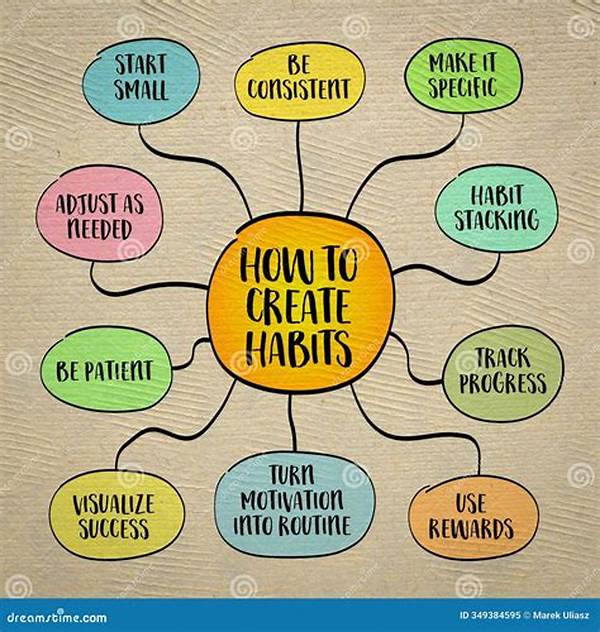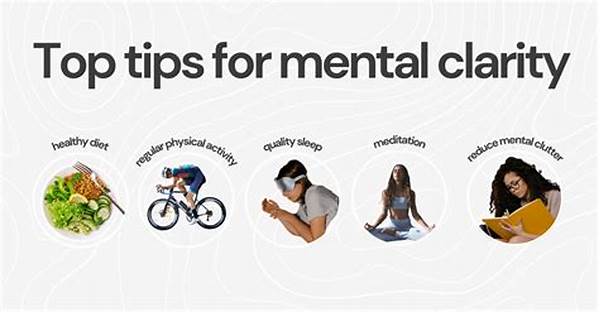H1: Journaling for Stress Relief Backed by Science
Read More : Daily Rituals Of Highly Productive Gen Z
In today’s fast-paced world, stress has become a constant companion for many. Whether from work pressures, relationship challenges, or the myriad of responsibilities in our lives, it’s something we all face at some point. But what if there was a proven, low-cost, and accessible way to manage this stress effectively? Enter the world of journaling. Yes, this age-old practice of putting pen to paper is not just for chronicling the mundane events of your day or capturing fleeting thoughts. Journaling is a therapeutic method backed by science, offering an escape hatch from the pressures that can bog us down. Embarking on this journey can reshape your mental landscape, alleviate stress, and improve your overall well-being.
Journaling for stress relief is more than just writing your thoughts. It transforms your cognitive processes, enabling you to organize and process feelings in a manner that decreases stress and anxiety. In 2018, psychologists conducted studies showing that expressive writing, a form of journaling, reduces stress. Participants who journaled regularly reported lower anxiety levels, improved mood, and a deeper sense of understanding about themselves. What makes journaling particularly appealing is its simplicity. You don’t need anything fancy—just a notebook and a pen. Your time with your journal can be intimate, chaotic, reflective or all of the above. Embrace imperfections. The very act of journaling frees your mind and allows emotions to flow onto the page, ultimately lightening your emotional load.
Journaling can be your personal therapist available at any hour. It’s particularly effective because it causes you to slow down and reflect on your mental state rather than letting stressors build up unchecked. The act of writing compels you to confront feelings, acknowledge them, and begin to process them constructively, leading to emotional release and a calmer disposition. What’s more, the benefits don’t end with stress relief. Journaling can enhance problem-solving skills and creativity, improve memory and comprehension, and foster self-discipline. The next time you feel overwhelmed, try reaching for a journal instead of scrolling through your phone or watching TV. Partner with your thoughts and confront stress head-on. Remember, journaling for stress relief is backed by science and has the power to change your life.
H2: How Science Supports Journaling for Stress ReliefIntroduction
In a chaotic world, finding ways to unwind is essential for maintaining our mental health. From yoga retreats to immersive apps, the self-care industry abounds with options. While many strategies boast benefits, one simple tool stands out for its scientifically-backed results—journaling. This practice, far from being a nostalgic pastime, is an effective stress management technique advocated by researchers and therapists alike. By understanding how journaling for stress relief backed by science works, you can better harness its potential to enrich your mental well-being. Not only does it provide mental clarity, but it also acts as a medium for personal growth and emotional release.
Journaling’s efficacy stems from its ability to foster mindfulness, helping you sort through overwhelming emotions. By setting aside time to reflect, you allow your mind to focus, thereby reducing anxiety levels. Notably, the American Psychological Association highlights that journaling about thoughts and feelings can lower cortisol levels, a hormone related to stress. Embracing journaling as a habit can lead to profound shifts in your mental state, thus making it an attractive method for stress relief, backed by rigorous scientific findings.
H2: The Science Behind How Journaling Works
Studies highlight the relationship between journaling and its effects on emotional resilience. When recorded outcomes demonstrate that individuals engaging in regular journaling experience decreased levels of anxiety, it’s no accident. Writing activates brain regions linked to emotional processing, promoting a sense of calm. A study at the University of Texas at Austin revealed that journaling strengthens immune cells, presenting not just mental benefits but physical ones too. This documentation of thoughts enables you to articulate confusion into clarity, presenting a new narrative of empowerment over your stressors.
H3: Testimonials and Personal Experiences
Many people have turned to journaling as their anchor amid life’s storms, with testimonials underscoring its value. As one avid journaler recounts, “Journaling helped me navigate life’s challenges with a clearer head and more optimistic outlook.” By leveraging this accessible tool, you too can join the ranks of those who conquer stress with the simple act of writing. This science-backed approach offers great returns, improving mental health, emotional capacity, and overall life satisfaction. Consider how this evidence-based practice, journaling for stress relief backed by science, adds to your self-care toolkit.
By weaving together a tapestry of creativity and real-life applications, journaling makes your emotional landscape more navigable, offering both insight and solace. Its documented benefits, coupled with personal stories of transformation, provide a compelling case for why you should consider adopting this practice.
Summarized Key Points
H2: Creating the Perfect Journaling Habit
Structuring your journaling experience can seem daunting at first, but with a few key strategies, it can become an enriching part of your daily routine. Start by setting dedicated time slots just for your journaling practice. Whether it’s the first thing in the morning, during lunch breaks, or right before you go to bed, consistency is your friend. By establishing a routine, you signal to your brain that this is a special, non-negotiable time set aside just for you.
Choosing a comfortable setting is also crucial. Find a quiet corner, a cozy café, or even garden space that allows you to immerse yourself in the process. The environment where you journal can affect the quality of your entries. Decorate your space with items that inspire calmness and creativity, whether that be a fragrant candle or a playlist of your favorite tunes.
Next, discard any notions of perfection. Your journal is your personal space to let thoughts flow freely and authentically. Don’t worry about grammar or spelling. Let go of any inner criticism and write openly. The aim here is to connect with your thoughts and emotions genuinely. With time, you’ll find that making mistakes is inconsequential compared to the invaluable insights gained, especially as journaling for stress relief is backed by science.
Lastly, remember that reflection is key. At times, revisit past entries to observe your growth and shed light on recurring patterns or new perspectives. This process not only solidifies self-understanding but can guide future changes in behavior or thought processes. Incorporating feedback into your journal can also transform how you perceive challenges, both big and small.
H3: Transformative Power of Regular Journaling
Many are astounded at how small steps can lead to significant transformations. Regular journaling, supported by scientific research, is such a step. The commitment to understanding and deconstructing emotions through words can be revolutionary, especially as journaling for stress relief backed by science. Stories abound of individuals finding new insights, reduced stress, and deeper connections with themselves. Imagine giving yourself this gift—a self-addressed letter encouraging exploration, reflection, and, most importantly, healing.
H2: Illustrated Benefits of Journaling
Journaling remains a humble yet profound practice, echoing the value of simplicity amid complexity. The illustrated benefits are just a glimpse into what journaling can offer. You are not just capturing your thoughts but evolving with each entry.
Engaging in journaling can be seen as embarking on a journey of self-exploration. When done correctly, it fosters self-expression and emotional growth. This practice, with its wealth of benefits from reduced stress to enhanced creativity, is undoubtedly a formidable addition to your mental health toolkit. Moreover, it’s backed by scientific insights that reinforce its efficacy.
By weaving journaling into your daily life, you’re engaging with a practice ancient yet timeless, deeply personal yet universally applicable. It’s a dialogue between you and your paper, where you can grumble, dream, and ponder, all while unraveling the complexities of your mind and the world. Above all, remember that journaling for stress relief is substantially backed by science, offering a transformative power that cannot be overlooked. So, grab that pen and open the pages to a world of self-discovery that promises understanding, solace, and, most importantly, stress relief.



